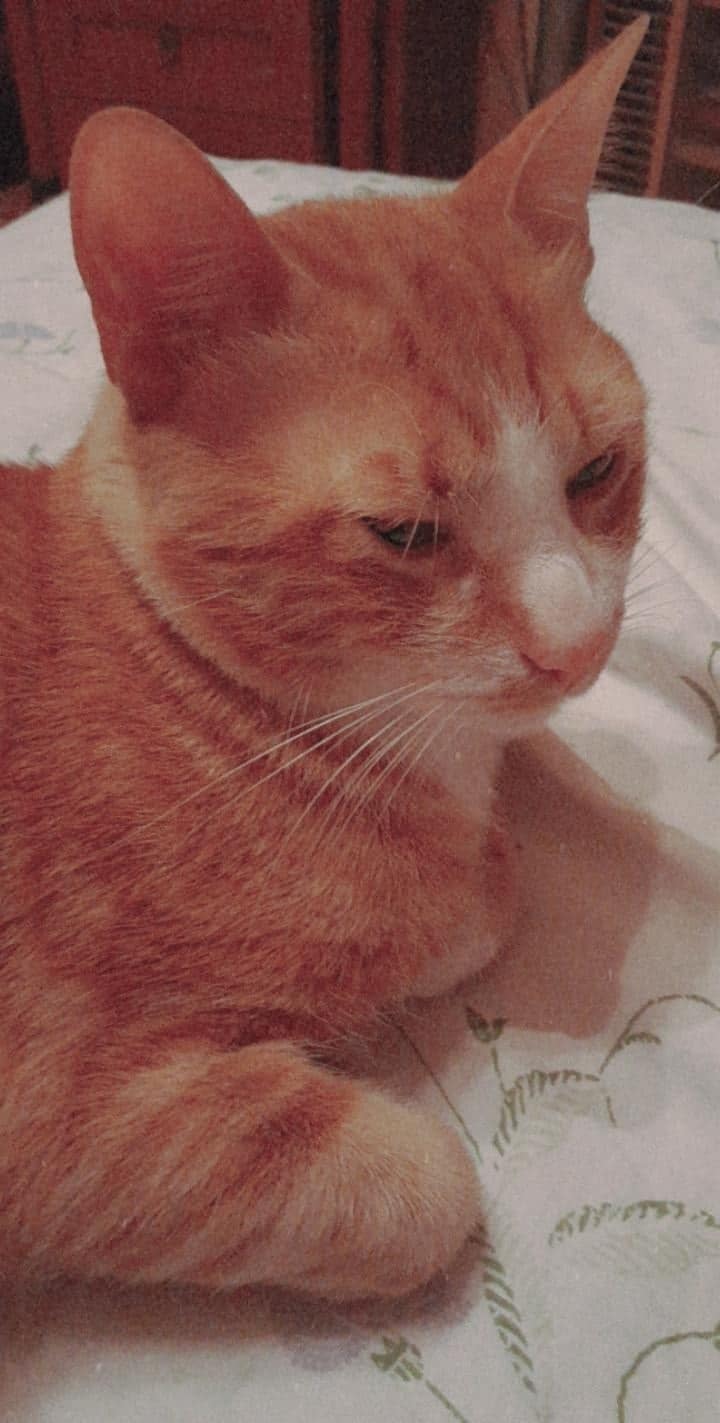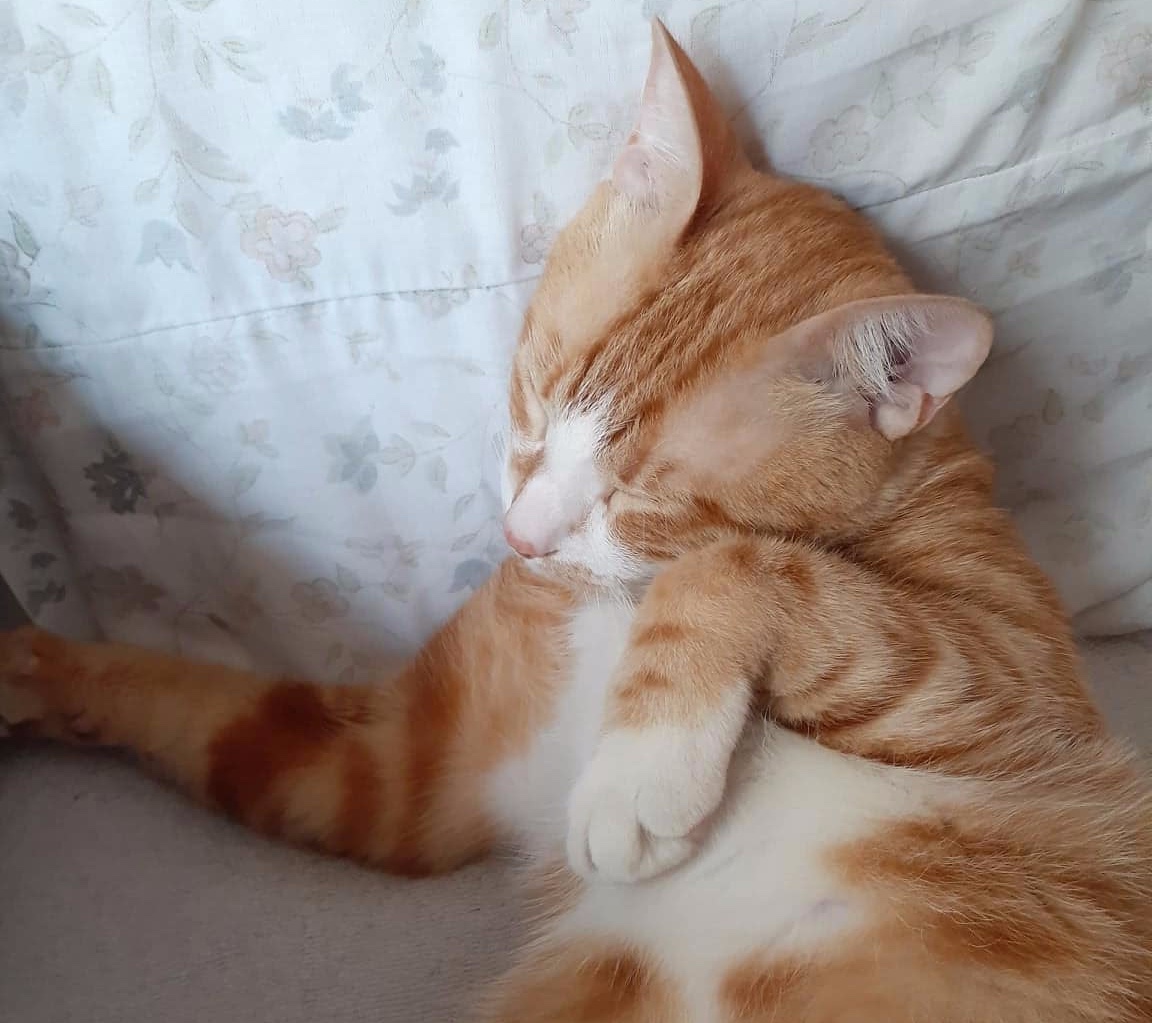They’re everywhere. No matter where one goes in Cairo, no matter how many street corners passed, one will undoubtedly be met with a stray cat or two (or three or four). In ancient Egyptian times, these creatures were worshipped and regarded with the highest esteem for their stealthy abilities in killing rodents and venomous snakes. Although not quite as highly regarded anymore, cats are still loved by many as they roam around the streets of modern-day Egypt.
With their fast reflexes and their heightened senses, these beautiful creatures undoubtedly know how to fend for themselves – thus having appropriately and popularly been dubbed as having ‘nine lives’.
Even though – for the most part – stray cats have adopted ways in fending for themselves in the busy streets of Cairo, there are still many of them -most especially new-born, helpless kittens- who get lost from their mother or pack.
Taking the decision to adopt
Should one encounter one of these helpless kittens in the streets somewhere, there are numerous options to help. If the kitten’s family is no where to be found, there are animal shelters such as Little Paws and ESMA Cats Shelter that can be called to assist.
If, on the other hand, one is able to consider the option of adopting the cat, then that needs to be given serious consideration.
Adopting stray animals – whether a cat or a dog – is a commitment in terms of providing these animals with loving homes. Having adopted a stray cat myself, the following is a series of suggestions on how to go about the decision of adoption.

Taking your pet to the vet
Once one has decided to adopt a stray kitten, the first visit should be to a veterinary clinic.
There are many vets to found across various areas in Cairo, and usually each area will have one or two well-known vets that are highly regarded. In order to find out which veterinary clinic to visit, it could be useful to ask an experienced friend who has pets or to turn to various Facebook groups that could help and offer suggestions.
The clinic I had visited in Heliopolis is called Pets Valley Clinic and this particular clinic has a Zamalek branch as well. It is a great clinic with a highly experienced and helpful staff who are used to dealing with both strays as well as domestic pets.
While at the vet, the kitten will get a general check-up and will also be provided with the appropriate shots, in addition to being given something at the beach of his/her neck in order to get rid of any insects, fleas or bugs that may have been caught off the streets. Many clinics offer first-time check-ups for strays for free… however, these check-ups for cats usually cost anywhere around 200 EGP. A follow up after this initial visit should be done as per the doctor’s recommendation.
Introducing the kitten to the home environment
Once the visit to the clinic is done, the kitten can be taken home.
It is important not to bathe the kitten; cats usually don’t get bathed, as they naturally wash themselves, however, the kitten may be gently wiped down using baby wipes in order to get rid of any dirt picked up from the streets.
It is also recommended to feed the kitten immediately. Depending on how young the kitten is, you may either have to provide feeding through a syringe or can simply provide a small bowl of milk. Keep in mind however, that – as they get older – cats generally should not be given too much milk or dairy as it is not good for them. Cats are generally lactose intolerant and giving them too much dairy can cause health and indigestion issues.
If your kitten is a little older -usually around 2 months old- he/she can be provided with cat food in the form of dry or wet food, alongside a bowl of water. Most pet stores or supermarkets that offer cat food will either have bags or boxes of food that suggest what age group the type of food is appropriate for… if not, you can also ask someone at the pet store. There are many different brands of cat food, and most cats’ preferences are different – a brand that I would recommend however is Mera Cat… some pet stores offer smaller bags of this particular brand by the kilo that usually cost around 50 EGP.
Hygiene maintenance
It is also crucial to provide the kitten with a litter box although a great thing about cats is that they instinctively know when and how to use a litter box, so there is not much potty training required.
The first couple of times your kitten needs to go potty, he/she may need to be regularly introduced to their new litter box in order to get used to it. Usually just taking him/her there and allowing the kitten to smell the box a few times will be enough to get them to know where to go from that point on.
You can buy sand/litter for the litter box from any pet store. I would recommend using Cat Zone, which comes in a variety of different odours to help cover up the litter smell. A five-kilo bag of litter can cost around 55 EGP.
You may also choose to provide your car with a anti-flea-collar initially.
Co-habiting and taking things slow
Generally speaking, try to be as gentle and patient as possible with your kitten when he/she is first brought home. Often, these animals are scared to approach humans and they may hide in fear – however, most kittens end up clinging to you almost immediately.
It is important to take the first few days slow and to keep tabs on the kitten’s eating, sleeping and excretion patterns. If you feel as though any of these patterns seem irregular (are not happening as often as they should), then feel free to either phone or visit your local vet to ask about it.
From this point on, everything gets easier and this new member of the family will unexpectedly add so much more value to your life – with their furry warmth as they curl up next to you in bed, and their paws in your face first thing in the morning.
The current reality for street animals in Egypt
There have been numerous accounts of brutality against street animals in Cairo throughout recent years – from poisoning to even torturing both stray cats and dogs. However, with this rise in brutality there has also been a rise in awareness and animal rights and welfare entities that have been actively trying to put a stop to it.
Vigilante groups such as Pet Shop Watch Egypt, for example, have made an effort to go around various pet shops in Cairo in order to ensure that the shop owners are providing the animals with proper shelter, nutrition and conditions.
In addition to this, Egypt’s General Authority for Veterinary Services (GAVS) also issued new pet ownership license requirements earlier this year, ensuring that pet owners provide documents proving that their pet has been examined by a certified veterinary unit and has been vaccinated; while Egyptian MP also submitted legislative amendments to criminalize all forms of animal abuse late last year.








Comments (4)
[…] of the family to come back home to. In recent years, more and more people in Egypt have opted for adopting stray baladi cats and dogs rather than buying a new […]
[…] of the family to come back home to. In recent years, more and more people in Egypt have opted for adopting stray baladi cats and dogs rather than buying a new […]